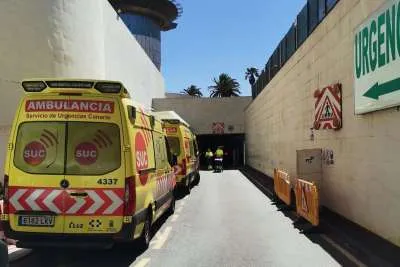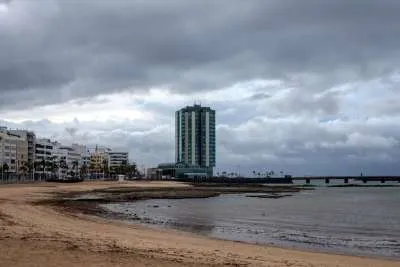UK to Canary Islands Drug Supply Allegations: Legal Implications Explained
- 01-06-2025
- Business
- Canarian Weekly
- Photo Credit: Freepik / Pexels
Allegations of drug supply between the UK and the Canary Islands have captured headlines and sparked considerable debate. This topic, focusing on those concerned in the supply of drugs, is especially relevant for those navigating complex legal landscapes.
If you or someone you know is facing such allegations, understanding the legal implications is crucial. For those concerned in the supply of drugs, this article could offer key insights.
Recent high-profile cases have highlighted the pivotal role the Canary Islands play as a transit point for narcotics entering Europe. In this blog post, our experts will explore the key legal principles, international dimensions, and best practices for navigating such serious allegations.
Legal Framework: Concerned in the Supply of Drugs
Under the Misuse of Drugs Act 1971, being "concerned in the supply of drugs" encompasses any involvement in supplying controlled substances. This can include activities like:
• Arranging meetings or transactions
• Providing transportation or logistical support
• Managing finances or distribution channels
A crucial point is that physical handling of drugs is not a requirement for this charge. Individuals can be implicated simply by being involved in the supply chain. Sentences vary depending on factors such as the class of drug, quantity, and the individual's role.
The Canary Islands: A Gateway in the Drug Supply Chain
Geographically, the Canary Islands are an attractive hub for drug traffickers. Their proximity to Europe, Africa, and South America enables them to act as a strategic stopover for illicit shipments.
Authorities have reported multiple incidents of large drug seizures in these waters. For example, Spanish law enforcement recently intercepted over 3.3 tonnes of cocaine from a fishing vessel off the Canary Islands (MAOC).
This highlights the significance of international collaboration between British and Spanish law enforcement agencies in combating such crimes.
Sentencing and Legal Consequences
Sentencing for those found guilty of being concerned in the supply of drugs depends on several factors, including the type and quantity of the drug involved:
• Class A (e.g., cocaine, heroin): Potential life imprisonment with sentences typically between 3-16 years.
• Class B (e.g., cannabis): Up to 14 years in prison.
• Class C (e.g., anabolic steroids): Maximum of 14 years.
Courts consider aggravating and mitigating factors, including prior convictions, cooperation with law enforcement, and evidence of coercion. For further insights, visit Crown Prosecution Service: Drug Offences.
Extradition and Cross-Border Legal Cooperation
Cross-border cooperation between the UK and Spanish authorities plays a vital role. Under the European Arrest Warrant (EAW) framework, individuals suspected of drug-related crimes can be swiftly extradited. A notable case saw a British national arrested in Tenerife and extradited to the UK for prosecution (Canarian Weekly).
This cooperation demonstrates the importance of international legal collaboration in dismantling transnational criminal networks.
Strategies to Minimise Legal Risks
To avoid becoming entangled in drug trafficking allegations, consider these strategies:
• Maintain strict personal and professional boundaries, especially regarding suspicious business proposals.
• Understand the legal implications of travel and association with high-risk individuals or operations.
• Seek legal advice immediately if you suspect you may be under investigation.
For general guidance on this topic, review the Sentencing Council guidelines.

Navigating the Complexities of Drug Supply Allegations
If facing charges or under investigation for being concerned in the supply of drugs, obtaining qualified legal representation is critical. Solicitors can provide advice, assist with evidence gathering, and represent clients during court proceedings. This proactive approach may mitigate the potential impact of legal consequences.
The Broader Impact of Drug Trafficking
Drug trafficking not only impacts those directly involved but also has broader societal implications. Increased availability of controlled substances contributes to public health crises, fuels organised crime, and places a strain on legal and healthcare systems.
Authorities must continuously adapt to new smuggling methods, including the use of sophisticated concealment techniques and digital communication platforms. This dynamic environment necessitates constant vigilance and adaptation by law enforcement and legal practitioners.
For more insights into possession penalties and supply and production penalties, this article could be illuminating.
Final Reflections: Staying Informed and Protected
Allegations of being concerned in the supply of drugs between the UK and the Canary Islands highlight the complexity of modern drug trafficking operations. Staying informed, seeking timely legal advice, and maintaining transparency in personal and business dealings are vital steps in minimising legal risks.
For individuals and businesses, due diligence and a clear understanding of legal obligations can help avoid serious legal entanglements. Remember, swift action and expert guidance can make all the difference.
Please be advised that this article is for informational purposes only and should not be used as a substitute for advice from a trained legal professional. If you are facing issues regarding drug supply allegations, seek the advice of a qualified solicitor.
Other articles that may interest you...
Trending
Most Read Articles
Featured Videos
TributoFest: Michael Buble promo 14.02.2026
- 30-01-2026
TEAs 2025 Highlights
- 17-11-2025




























































